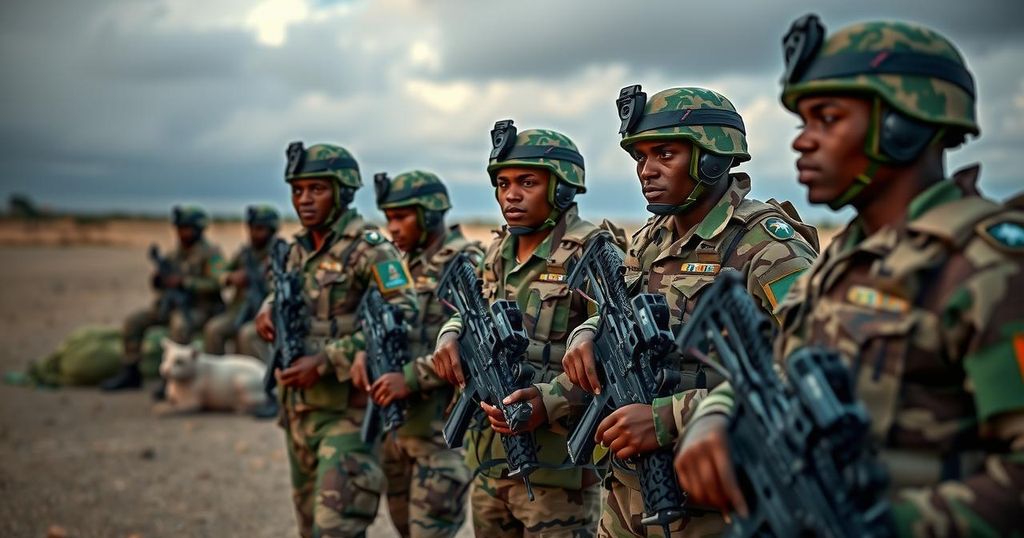Ethiopia’s Military Commitment in Somalia Faces Territorial Disputes with Somalia

Ethiopia intends to retain its troops in Somalia as part of the African Union Support and Stabilization Mission (AUSSOM), despite Somalia’s demand for their withdrawal linked to a maritime agreement with Somaliland. This situation complicates regional security and diplomacy, with potential implications for East Africa’s political landscape.
Ethiopia has reaffirmed its commitment to maintaining military personnel in Somalia as a component of the forthcoming African Union Support and Stabilization Mission in Somalia (AUSSOM). Nevertheless, this pledge is challenged by Somalia’s demand for the withdrawal of Ethiopian troops, contingent upon Ethiopia reversing its controversial maritime agreement with Somaliland, which facilitates Ethiopia’s access to the Red Sea in exchange for recognizing Somaliland’s sovereignty. This arrangement has ignited significant debate, as Somalia contends that it violates its territorial rights. Somalia’s stance has received endorsement from various international organizations, including the United Nations and the African Union, which emphasize the necessity of preserving Somalia’s territorial integrity. The insistence from the Somali government emerges amidst a backdrop of heightened regional tensions, revealing the complex interplay of security, diplomacy, and territorial disputes within the Horn of Africa. As a resolution deadline looms, uncertainty surrounds the future of Ethiopian military involvement in Somalia under AUSSOM, potentially impacting regional security and diplomatic relations. The situation highlights the fragile balance of power and alliances in the Horn of Africa, as Ethiopia’s strategic ambitions clash with Somalia’s concerns over national sovereignty. The outcomes of this situation could significantly influence the geopolitical landscape and security architecture across East Africa.
The Horn of Africa, an area characterized by its intricate political and territorial dynamics, has witnessed ongoing disputes, particularly between Somalia and Ethiopia. The contentions regarding maritime access and recognition of regions like Somaliland underscore the historical complexities surrounding national borders and identity. Ethiopia’s interests in access to the sea have long been a contentious issue, given its landlocked status. The establishment of the African Union Support and Stabilization Mission in Somalia aims to bolster stability and security in a region fraught with conflict stemming from both internal strife and international geopolitical rivalries.
In conclusion, Ethiopia’s decision to retain military forces in Somalia amid Somalia’s demand for troop withdrawal presents a critical challenge to regional stability. The ongoing dispute over maritime rights and territorial integrity illustrates the broader complexities of power dynamics in the Horn of Africa. The outcomes of negotiations related to AUSSOM will likely have lasting implications on security and diplomatic relationships in East Africa, emphasizing the need for a balanced approach that respects the sovereignty of all nations involved.
Original Source: www.garoweonline.com








